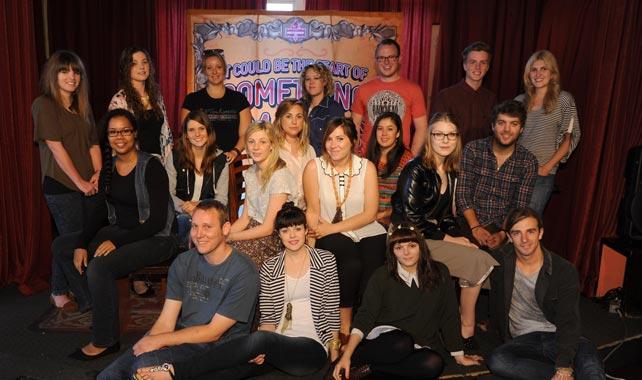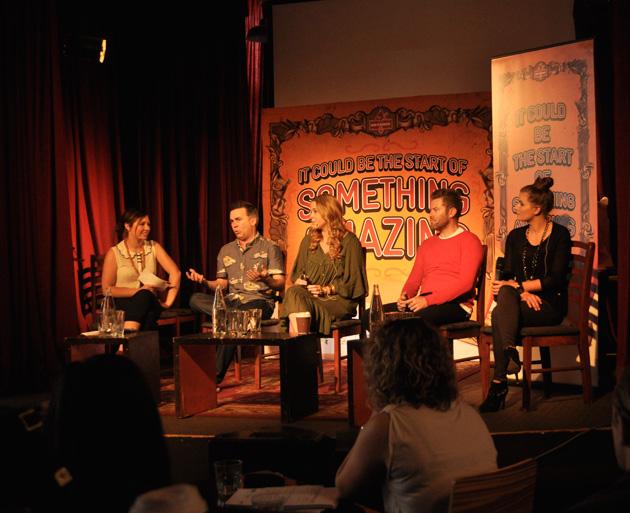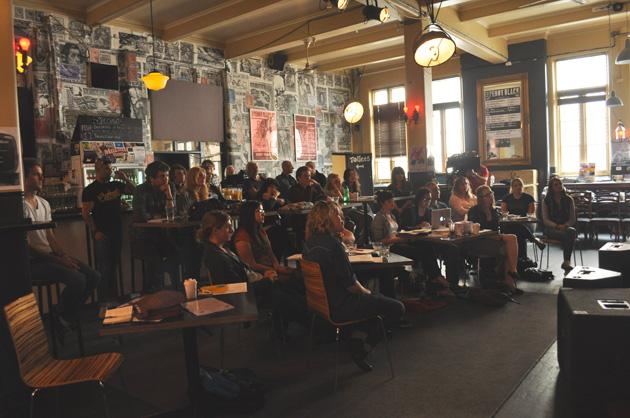
We sent Jennabell Taylor along to the Telstra Road to Discovery Boot Camp on a recon mission, so she could report back on the most valuable tips and trade secrets to pass on to any emerging songwriters, musicians and performers…
For the
past ten years The Telstra Road to Discovery has been
supporting independent Australian musicians by helping to inspire,
educate and develop their careers through a unique ‘Boot Camp’ on how to
make it in the music industry. Day One of the mentoring workshop kicked off this week at venue The Penny
Black in Melbourne, with the 18 finalists and a handful of
influential music industry big shots.
So, what are the secrets to making it in the music industry?
For someone who can barely hum a tune, I learned a lot about the
industry – and how to not get screwed over by it throughout the three
days I attended. With that said, Stephen Wade (CEO of Select Music Booking Agency),
is of the opinion that “If you haven’t been screwed over, you haven’t
made it in the industry.” So, if you find yourself temporarily
penniless and sad, it just means
you’re probably on the road to stardom!
First things first: you need a good song. But not just a ‘good’
song, a fantastic song. A song with a point of difference, that sounds
unique and is truly your own. Mentor Bill Page, Creative Manager at Mushroom Music said, “there’s a lot of people now who are copying successful acts, so it’s nice to find talent with a point of difference”, so originality is key. Without strong
song choice, don’t bother. You might look hot strumming a guitar, but without great songs you can’t make it.
The expert panel hitting the Finalist with their music knowledge.
Once you have mastered the difficult art of songwriting, you have to get it out into the world. Get out there, slog it out at every talent quest, busk on a busy corner and say ‘yes’ to every gig possible. Get to the point where you are comfortable and consistent enough to put on a great live show.
Image and sound are your key ingredients. When you play a live show you have to put on a performance to showcase your music and talent. What not to do at a live show? Stephen Wade says, “speaking too much to the crowd, or long drum solos. It’s just so bad. Not to mention annoying.”
To score a Manager/Publisher/Producer it is vital that you make a demo.
It’s easy to pull together something with recording equipment and programs you can work out of your bedroom these days. What works best is a song as stripped
back as possible. Bill Page prefers it to be “in its most early form – as
rough as can be.” Apparently, the experts say that even singing it into your iPhone and
texting it off is a viable option, if you’re too technologically-challenged for a home recording studio set up. Use whatever you have, and make it work.
It’s not uncommon for artists
to release their own EPs of a small but excellent sample of their work, independently, to help snare a label, agent or producer. It’s about quality, not quantity. Bill Page says, “the biggest
mistake an artist can make is to do a record too soon. The Jezabels
released three EPs before making their debut record.”

I spoke to Telstra Road to Discovery finalist Morgan Bain, about his boot camp experience. Morgan is a contestant in the songwriting category who started playing guitar at age 7, wrote his first song at 10 and was playing gigs by 15. He told me he has “gained invaluable knowledge through my experience thus far in the competition, but you have to be passionate.”
And that’s really what it all really comes down to: passion. That and writing the best, most life-changingly brilliant song you can.
Words by Jennabell Taylor.
Images supplied



